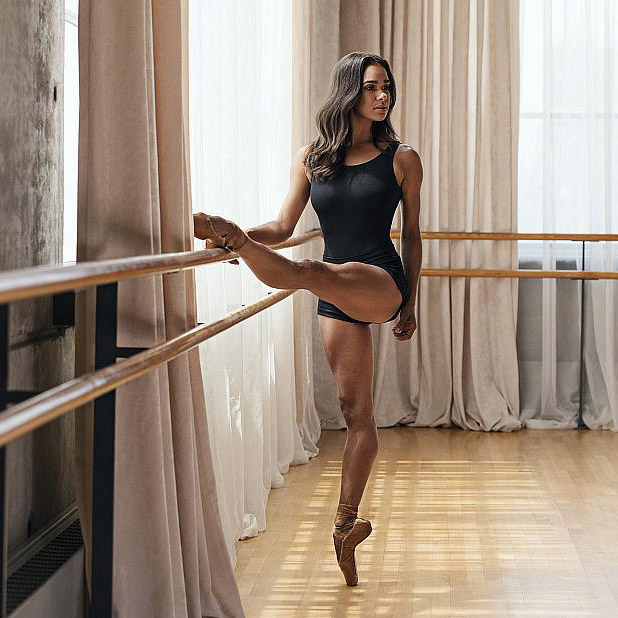For many Americans with a can-do, forward ho! attitude, the coronavirus lockdown has opened a gaping opportunity to devote and invest newly available hours to a course of self-improvement, honoring a tradition that goes back to Benjamin Franklin, the Founding Father of personal betterment and kite-flying. Why waste homebound hours stupefying in front of Netflix and Hulu when you could scarf up a new skill, start your own puppet theater, practice mime in front of a mirror, or create new sauces to give meals a festive olé?
This is where MasterClass meets the moment. A luxury-class online subscription service founded in 2015 (an all-access pass runs $180 a year), MasterClass has come into its own this coronavirus season, offering an all-star all-you-can-consume Renaissance smorgasbord of edu-tainment—home-schooling with celebrity panache. Instead of YouTube classes in basic algebra taught in front of a whiteboard to the institutional drone of an air-conditioning unit and fluorescent lights, it presents niftily packaged courses for budding creatives hosted by some of the most illustrious pros in their fields: Martin Scorsese and Ron Howard (directing), Natalie Portman (acting), David Sedaris (humor writing), and Chris Voss (an F.B.I. hostage negotiator offering insights into how to defuse tense standoffs with bank robbers and sullen teenagers). With more than 80 courses to sample and additional ones joining the arcade to freshen the mix, deciding which classes to choose can be something of a dartboard toss or brow-furrowing dilemma. Even I, the Play-Doh replica of a Renaissance man, had to do some Judicious Pruning to set up my spring-summer curriculum at the College of Quarantina.

Through a fickle process of elimination, I nixed some courses at the outset. Gordon Ramsay, Wolfgang Puck, Aaron Franklin—the cooking classes are nonstarters since Laura (the Arts Intel editor of Air Mail) won’t let me anywhere near the stove for fear I’ll turn the wrong knob and fire a missile from a silo deep in the Dakotas. I skipped Simone Biles on “Gymnastics Fundamentals” because I shan’t be hitting the vault anytime soon; ditto Misty Copeland on “Ballet Technique,” since my barre exercise would consist of abject whining followed by liniment. I couldn’t in good conscience study RuPaul on “Self-Expression and Authenticity,” since I consider self-expression and authenticity dubious propositions, especially when combined into a single candy bar.
An all-star all-you-can-consume Renaissance smorgasbord of edu-tainment—home-schooling with celebrity panache.
Playwriting: that’s something I could get into, should I ever want to branch out from pushing sentences up the mountainous anthill of nonfiction. So I glommed on to “Dramatic Writing,” by David Mamet, bearded sage of the groaning floorboards, an old hand at slinging the bull and making it sound like pool-hall philosophy or con-man lore. I found the course completely entertaining: his side-pocket shots (such as his observation that Barbra Streisand wrings “each note as if the fate of the universe depended on it,” a no-no in dramatic dialogue) and rabbinical humor give his coaching sessions a real one-on-one punchiness.
But as for fresh revelations, forget it. Mamet’s running commentary on actors overthinking their roles and gestures, the blight of expositional padding in scripts, and the indulgent coddling of undergraduate snowflakes (vis-à-vis Oleanna) are familiar to anyone who’s read his Three Uses of the Knife, True and False, and Bambi vs. Godzilla, which deploy the same discursive, school-of-hard-knocks approach. Similarly, David Lynch’s “Creativity and Film” class is largely an illustrated edition of his nonfiction guidebook Catching the Big Fish, the same tips and reflections augmented here by his plumy white hair and cracker-barrel voice, which evokes a bygone America of flinty virtues and rusty nails. As everyone knows, Lynch is a major evangelist for Transcendental Meditation, which receives its own bonus episode, where he says nothing he hasn’t said a zillion times before. Even I, a T.M. practitioner myself, wish he’d come up with some new material.
Like the Mamet and Lynch soirées, Vogue editor in chief Anna Wintour’s course on “Creativity and Leadership” (oy) overlaps considerably from earlier promotionals: in this case, the documentaries The September Issue (2009), which depicted the editorial assembling of Vogue’s ad-fat fall fashion annual, and The First Monday in May (2016), which snuck viewers behind the scenes of the Met Gala. Wintour’s management advice (recorded before the recent turmoil at Condé Nast) provides an executive sampler of platitudinous placebos—“A good team is everything,” “Invest in the right people,” “Always think about the big picture,” and so on—that have even less adhesion in the post-corona era, when staff meetings will presumably be held for the foreseeable future in the phantom zone of Zoom and the big picture has shrunk to a peach pit of raw survival.

Eclecticism is one of MasterClass’s most vaunted assets, and I discovered that the courses that have clicked the most with me are ones that I otherwise might have overlooked because they seemed too outside my bailiwick. Reba McEntire teaching country music sounded like it might be simply an exercise in brand extension, but her forthright delivery and deft deconstruction of what makes a “story song” take wing become improbably thrilling as she performs a pair of acoustic takes of her hit “Fancy,” she and her fellow musicians adding or removing little frills and funky fillips that shift the song from poignant testimonial to honky-tonk strut. It’s like having a nifty sports car built, stripped down, and rebuilt before your eyes and ears.
The other course that scored a knockout clean out of nowhere was SimCity creator Will Wright’s deep dive into “Game Design and Theory.” I’m not a gamer, I wouldn’t know Fortnite if I fell into it, I have no plans to buy a Dell Alienware Area-51 laptop with enough computing power to get me to Mars, and yet I found Wright’s guided tour through the gallery of game psychology, decision branches, audio and visual aesthetics, 3D topography, nested loops of success and failure (“Make failure fun”), Easter eggs (a briefly glimpsed Loch Ness Monster in Sims 2000), and “orthogonal creativity” completely fascinating and adaptable to almost all modes of narrative. Wright’s a terrific, enthusiastic teacher and I felt I really learned “sump’n,” to quote a brassy blonde in an old New Yorker cartoon. How rare that feeling can be in these days of idiocracy.
James Wolcott is a columnist for Air Mail


